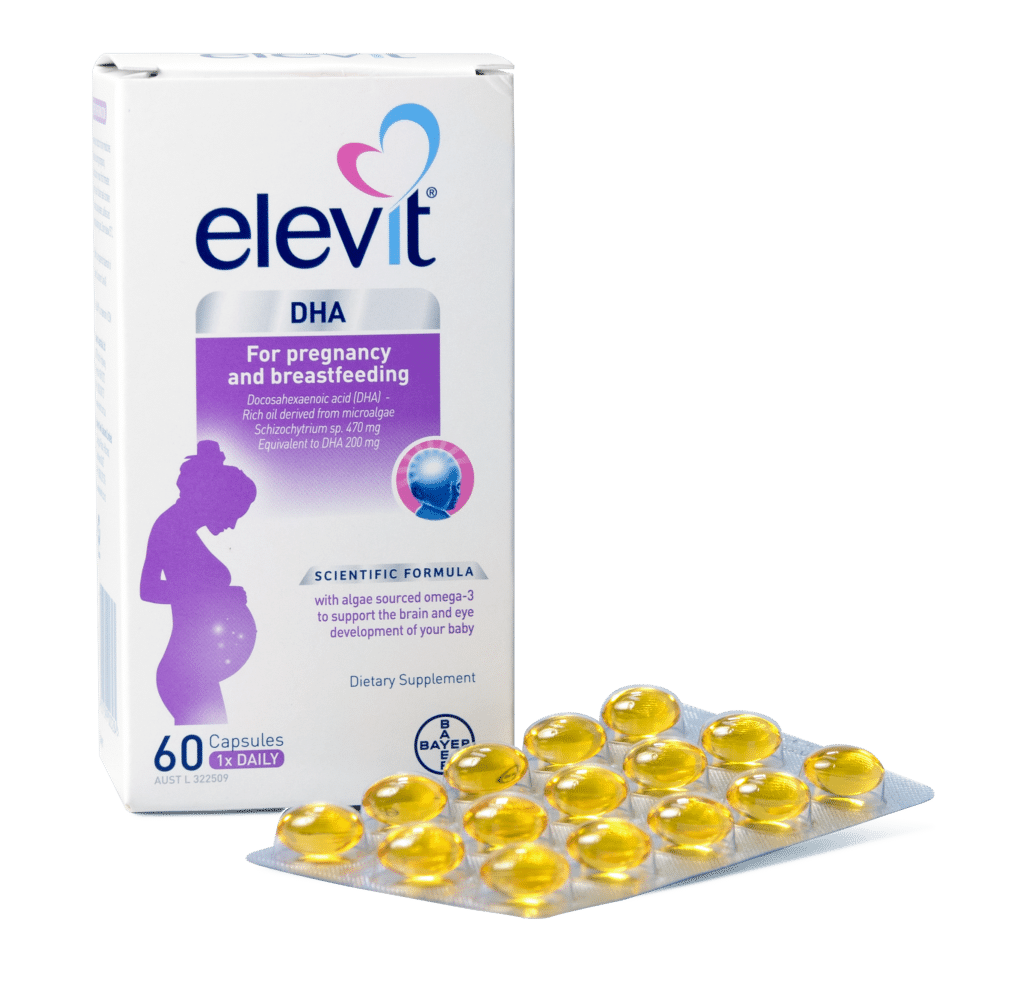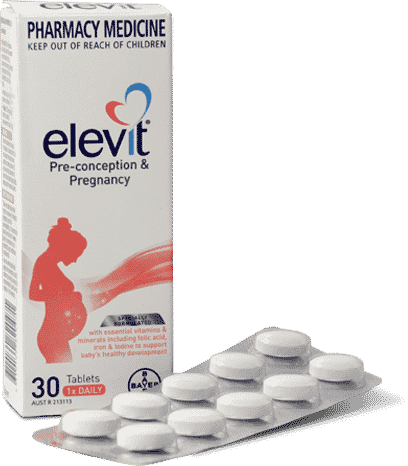You’ve recently found out you’re pregnant– congratulations!
It’s completely normal for pregnancy to trigger many different emotions. One moment you may feel over the moon with joy and excitement. Next you may feel nervous, anxious, or completely overwhelmed.
It’s okay to fall into feelings of overwhelm. Just take a moment to remind yourself that you have nine (ish) months to prepare for the baby’s arrival. You can begin your planning with this pregnancy guide, loaded with information and tips on what to expect when you’re expecting.
What to Expect?
First trimester (conception – 12 weeks)
What’s happening with you?
During the first trimester your body is undergoing massive physiological changes in preparation to grow and nurture the tiny human inside your belly. The first trimester is the most symptomatic stage of pregnancy. Common symptoms include nausea, fatigue, food cravings, aversions to certain smells that previously didn’t bother you, breast tenderness, heartburn, and constipation. Every pregnancy is different, and every woman reacts differently to being pregnant. You may feel one, two, or three of these symptoms, or you may feel no symptoms at all.What’s happening with the baby?
Weeks 4 to 8:- The neural tube is developing (to later become baby’s brain and spine)
- Limbs begin to grow with webbed fingers and toes
- Cardiac tissue and the muscles of the eyes, mouth and nose start to form
- The lungs start to take shape
- The inner ear starts its development
- Baby’s heartbeat can visibly be seen in some scans
- Cartilage in the limbs, hands, and feet forms in preparation for bone growth
- Eyelids form
- Liver and genitals start developing
- The kidneys and pancreas start functioning (producing urine and insulin)
- Fingernails, skin, and lips start to form
Second trimester (13 to 26 weeks)
What’s happening with you?
The second trimester delivers a welcomed burst of energy for many women, allowing a break from symptoms of fatigue, morning sickness and mood swings. Your focus may not be 100-percent, but baby brain aside you should find yourself functioning on par with your preconception self. Physiologically, your stomach will continue to grow (approximately 6kg) and you may experience darkened nipples, linea nigra (the dark stomach line), skin pigmentation, body rashes, headaches, pelvic pain, groin pain, and food cravings.What’s happening with the baby?
Weeks 14 to 16:- The skull and bones start to harden
- Skin starts to thicken
- Hearing starts to develop
- Eyes begin moving
- Toenails start to grow
- The neck becomes more defined
- Lower limbs develop
- The digestive system starts functioning
- Baby can start to control movements
- You’ll see facial features during your scans (your first glimpse – hooray!)
- Fine hair starts to grow all over the body
- Female babies start to develop a uterus and vaginal canal
- Baby’s movement starts to increase
- Baby can suck their thumb
- Fingerprints and footprints develop
- Skin is wrinkly, and coloured pink and red due to visible blood vessels
- Fat starts to form
Third trimester (27 to 40 weeks)
What’s happening with you?
During the third trimester, you’ll start to spend more time with your care team in preparation for the delivery of your baby. As the little one continues to develop and grow, you’ll become more tired, uncomfortable, irritable, and sore. Give yourself permission to rest and relax as often as possible. You may also experience pelvic floor pain and increased pressure as your baby grows heavier, heartburn, abdominal pain, shortness of breath, tingling in the fingers, swelling of feet and hands, sleeping difficulties, constipation, haemorrhoids, and Braxton Hicks contractions (tightening of the muscles of the uterus that fool you into thinking you’re on the verge of labour). As the baby’s growth spurts, you’ll gain around 5kg of extra weight. You can thank your baby, amniotic fluid, placenta, breasts, blood, and uterus for the extra strain on your back.What’s happening with the baby?
Weeks 25 to 28:- Baby’s lungs are almost fully developed
- The nervous system starts to develop
- Baby can open and close their eyes
- Skin starts to smoothen due to increased fat
- Baby may respond to loud sounds with kicks
- Baby’s movement is stronger
- Baby’s eyes can sense changes in light
- Hair may appear on baby’s head
- For males, testicles will begin to descend
- Bone marrow starts forming red blood cells
- Lungs develop further
- Fingernails grow to the fingertips
- Limbs become more plump
- The circulatory, musculoskeletal, and nervous systems complete their development
- The lungs and brain finish developing
- Fat stores increase
Pregnancy Checklist
Monitor your caffeine intake
You can still enjoy your morning cuppa, just make sure to keep your caffeine intake at 200 mg or less per day. To help you plan your daily caffeine hits during pregnancy:
- 1 shot of espresso = 100 mg
- 1 cup of black tea = 48 mg
- 1 cup of green tea = 29 mg
- Matcha = 70 mg
- Standard can of cola = 49 mg
Take a prenatal vitamin supplement
A growing baby needs abundant vitamins and nutrients. Even if you’re eating a well-balanced diet, it can be hard to determine whether you’re providing the baby with adequate nourishment needed for healthy growth. That’s where prenatal supplements enter the pregnancy picture, providing daily support to nourish mum and bub during the vital stages of development.
Focus on your nutrition
The nutritional requirements during pregnancy are more demanding than usual. Reminder: you’re eating for two now! Try to incorporate a range of foods from each food group, ensure you’re eating enough protein with each meal, include foods that can help to relieve constipation, and research what is and isn’t safe to eat during pregnancy (more on that below).
Learn ways to relieve morning sickness
Ironically, morning sickness doesn’t only happen in the morning. It can happen at any time of the day or night. While some women don’t experience morning sickness during pregnancy, it is incredibly common. Familiarise yourself with these ways to relieve morning sickness:
- Choose to eat foods that are high in protein, low in fat, and easy to digest
- Avoid foods that are spicy, greasy, or fatty Snack regularly (there’s no such thing as too much snacking)
- Drink plenty of fluids to avoid dehydration caused by vomiting
- Learn what triggers your morning sickness and avoid if possible
- Get plenty of fresh air by taking regular walks outside
- Try a prenatal supplement to restore and maintain nutrition
Increase your water intake
During pregnancy your body requires more water than normal to create more blood, build new tissue, carry nutrients to your baby, and help prevent urinary tract infections (UTIs), constipation, and haemorrhoids. Aim for: 2-3 litres per day (or 10-12 glasses)
Follow a low-risk exercise routine
Despite many people believing exercise to be dangerous during pregnancy, it’s beneficial for mothers and their growing bump. By maintaining a low-intensity routine, you can improve your mood, lower the risk of postnatal depression, prevent gestational diabetes, and strengthen your body for labour. Remember, sex is considered exercise, and you’re completely fine to engage in a little intercourse if that’s what feels good for you.
Take a prenatal supplement
To optimise your chances of falling pregnant, nutritional experts recommend taking a prenatal supplement 3 months before you start trying to conceive. The initial weeks of a baby’s life are critical, with the development of some of the most important organs taking place. Consuming a daily prenatal supplement with 400 mg of folic acid and 150 mg of iodine will help to reduce the risk of some serious birth defects and provide adequate nourishment for the baby during the earliest days of conception (before you’re even aware you’re pregnant).
Keep your tummy moisturised
Stretch marks are micro-tears that occur in the skin when it stretches to accommodate your growing baby. They can appear on your breasts, thighs, stomach, and bum. Despite being a completely normal part of pregnancy, it’s fine if you want to prevent stretch marks or improve their severity. You can do this by applying and massaging a deeply nourishing cream or oil into your skin daily.
Organise your maternity leave
Look into your and your partner’s work contracts for information on maternity and parental leave entitlements. Then, work out your plan, ensuring that you provide enough notice to your employer/s. In Australia, you are normally required to provide 10 weeks’ notice before going on maternity or parental leave.
Book and attend birthing classes
You’ve likely seen childbirth classes in movies. As silly as they may seem, they actually serve the purpose of preparing you and your birthing companion with practical knowledge and psychological advice for labour. Childbirth classes will cover what happens during labour, different stages of the experience, pain relief options, and postpartum care.
Book a baby first-aid class
Whether you’re a first time or experienced parent, the moment you leave the hospital can be clouded with anxiety. As the medical professionals hand over your baby’s baton of care, it’s normal to feel a little anxious over the potential of something going wrong. In the event of an accident, the first moments until an ambulance arrives are absolutely crucial. Learning baby first-aid will equip you with vital knowledge of how to respond, administer first-aid, perform CPR, tend to a wound, and respond to chokings, drownings, burns, seizures, falls, head injuries, allergies, and bites. TinyHearts Education provides insightful baby first-aid courses designed by paramedics. The best part is that you can complete the course online from the comfort of your couch, bed, or poolside cabana. We also recommend following the TinyHearts social media accounts for extra tips to use throughout your baby’s life.
Create a birth plan
A birth plan is a great way to confirm your birthing preferences. Labour can be unpredictable, and with all that can happen on the day it’s a good idea to establish your preferences beforehand and make them known to your birthing companion and team. Things to include in your birthing plan:
- Birth companions
- Environmental preferences
- Pain relief you’re comfortable using during labour
- Positions for labour and birth
- Assisted delivery methods
- Delivery of the placenta
- Your baby’s umbilical cord
Anything you’d like to avoid At the end of the day, there may be certain aspects of labour that are beyond your control. Your medical team will always do their best to put the health and safety of you and your baby first.
Baby-proof your home
Babies are curious creatures. The moment they become mobile, they’ll want to explore every inch of their home surroundings, so making your home safe for your tiny explorer is important. Depending on your home, baby-proofing can involve:
- Installing child-proof locks of cupboards and cabinetry
- Relocating cleaning products, alcohol, batteries, and poisons to a high position out of reach of small hands
- Installing gates for stairs and any rooms that are off-limits
- Organising electrical cords so they’re out of reach of small hands
- Checking smoke alarms Ensuring your garden and pool are fully fenced to align with Australian standards
- Adding safety covers to all power outlets
Popping corner covers on sharp furniture - Making sure all furniture is sturdy or topple-proof
Get your car seat fitted
In Australia, it’s illegal to drive with a baby unless you have a fitted car seat. Check your local government website for all the information on having a car seat properly installed in your car.
Pack your hospital bag
The prospect of having a baby will never seem more real than the moment you pack your hospital bag. Pack your hospital bag well in advance, just in case the baby decides to surprise you earlier than expected. Start with the following items:
For You
- Photo ID, Medicare card, private health insurance details
- Completed hospital paperwork
Birth plan - Any medication
Self-care items, including your toothbrush, skincare, deodorant, and other toiletries - Ice pads to soothe your vagina
- Comfortable underwear
- Phone charger
- Maternity pads or disposable underwear
- Snacks (you can never have too many snacks)
- Drink bottle
For baby
- Clothing, including socks and booties
- Baby blanket
- Muslin wrap
- Baby wipes
- Nappies
- Soft toys
Breastfeeding supplies
- Maternity bras
- Bottle and teats
- Breast pump
- Nipple balm
- Lactation pads
Things to Avoid During Pregnancy
Certain foods
Five types of infections that are dangerous for you and your baby during pregnancy are salmonella, E-coli, campylobacter, listeria, and toxoplasmosis. To decrease your risk of getting one, avoid the following foods for the full term of your pregnancy:
- Unwashed fruits and vegetables
- Raw eggs
- Raw or smoked fish and shellfish
- Raw or rare meat and poultry
- Dried or cured meats
- Unpasteurised milk and dairy
- Raw sprouts
- Mould-ripened cheeses
- Foods with a high vitamin-A content
Some skincare products
Some prescription skincare products, like retinoids, retinol, and vitamin A, can be dangerous for babies. Check in with your doctor or skin care specialist if you’re unsure about the effect of your skin care regime on your baby.
Alcohol
According to the Royal Australian and New Zealand College of Obstetricians and Gynaecologists (RANZCOG), alcohol is not good for a baby’s growth and development. To be safe, stop drinking alcohol when you first start trying to conceive. You’re free to celebrate with champagne once the baby is in your arms.
Cigarettes
Studies have shown that women who smoke are more than 50% less likely to conceive naturally when compared to non-smokers.
Smoking, vaping, and other nicotine products can increase the risk of miscarriage, preterm birth, low baby birth weight, birth defects, sudden infant death syndrome (SIDS), asthma, and other respiratory conditions.
For advice and assistance to quit smoking, visit Quitline.
Recreational drugs
Recreational drugs, like marijuana, cocaine, speed, heroin, ice, LSD, and methadone can cause serious harm to unborn babies. They can also increase the risk of miscarriage, preterm birth, and stillbirth.
For support on giving up recreational drugs, visit the Alcohol and Drug Foundation.
Intense exercise
While it’s completely healthy to engage in moderate exercise, like walking or jogging, vigorous exercise can increase the chance of having an incident that could harm your unborn baby.

Your Pregnancy Essentials
Elevit DHA
A scientific formulation of algae-sourced omega-3 to support baby’s brain, eye, and cognitive development during pregnancy. Designed to be taken alongside Elevit Preconception & Pregnancy Multivitamin.
What is DHA?
DHA is an omega-3 fatty acid essential for healthy brain and eye function. Humans can’t naturally produce much DHA, so it must be obtained through diet and supplementation.
What does DHA do?
Omega-3s are important components of cell membranes. During pregnancy, nutritional requirements for DHA increase to assist in the normal development of your baby’s brain, nervous system, and eyes.
How much DHA do you need?
The European Food Safety Authority recommends that pregnant women take 100-200mg DHA per day. That’s roughly the equivalent of one 95g tin of tuna. Since it’s recommended that women avoid seafood during pregnancy, it’s important to obtain DHA via supplementation.
What is the DHA dosage?
Elevit DHA is a once daily supplement that can be taken at any time of the day.

Elevit Pre-conception & Pregnancy Multivitamin
A multivitamin and mineral supplement specially formulated to support increased nutritional requirements of women during pregnancy.
What are the key benefits of Elevit Preconception & Pregnancy Multivitamin?
During the first eight weeks of pregnancy, the critical development of vital organs takes place. For your body to support these developments, it requires higher levels of certain nutrients.
What is the dosage?
Elevit Preconception & Pregnancy Multivitamin is a small once daily tablet that can be taken at any time of the day. For best results, start taking Elevit from at least one month prior to conception and throughout pregnancy.
More information and ingredients of Elevit Preconception & Pregnancy Multivitamin

Willow By The Sea Belly Butter
A deeply nourishing body butter featuring concentrated ingredients that help to lock in moisture and support skin elasticity during pregnancy.
Good for: Stretch marks and dry, tight skin.
How to use: Using dry hands, remove butter from the jar and gently massage into belly, hips, thighs, and breast. For best results, use immediately following a shower or bath to help lock in moisture.
More information on Willow By The Sea Belly Butter

New Baby Pack
Kick-start the fourth trimester with our New Baby Pack.
Includes the essentials to help you recover after birth and navigate the postpartum period.
– Only $80/month
– Free, discreet delivery
– Cancel anytime






